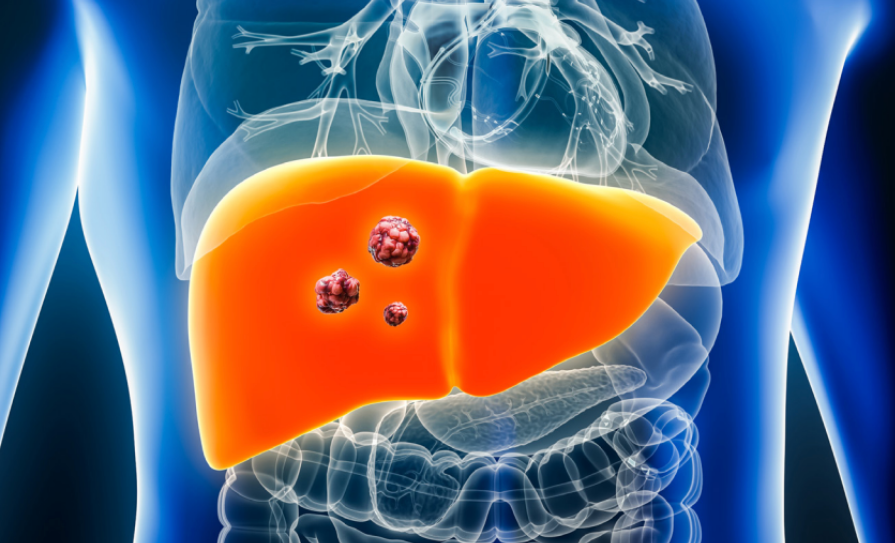Reference: September 2024 | Issue 9 | Vol 10 | Page 31
Is early-onset colorectal cancer a distinct entity?
There has been a worrying increase in colorectal cancer in young people. Research presented at the 2024 American Society of Clinical Oncology Annual Meeting suggests early-onset metastatic colorectal cancer (EO-mCRC) is a distinct clinical entity, with specific features that distinguish it from CRC in older patients.

The retrospective study recruited 1,272 patients with mCRC from five different Italian Institutions. Of these, 693 (54.5%) had EO-mCRC (age at diagnosis ≤50) and 579 (45.5%) had late-onset (LO)-mCRC (controls). In the EO-mCRC group, median age was 42.8 years, with some patients as young as 20.
All patients had at least one metastatic site and had received at least one line of treatment for metastatic disease.
The data revealed that in the overall population, median overall survival (mOS) was 34.7 months in patients with EO-mCRC verses 43 months in the control group. Median progression-free survival (mPFS) was 11 months in patients with EO-mCRC compared to 14 months in their older counterparts.
Younger patients with RAS/BRAF mutations had a poorer prognosis, with mOS of 30.3 months compared to 34 months in patients over 50 years. In the RAS/BRAF wild-type subgroup, mOS in younger patients was 43 months compared to 50 months in controls.
In the BRAF V600E mutated subgroup, EO-CRC patients showed a 16-month mOS versus 26 months in controls.
This research adds to a growing body of evidence which suggests that early-onset gastrointestinal cancers are associated with worse prognosis than older patients. Interestingly, this seems to occur regardless of the molecular status. This could have a considerable impact on clinical practice and research.
However, subsequent investigations will be needed to further understand the specific clinical and molecular characteristics of this growing group of patients to better define the more appropriate treatment strategy.
A new standard of care for CLDN18.2+HER2- advanced gastric cancer
Interim results from the phase 3 SPOTLIGHT study suggest zolbetuximab + mFOLFOX6 is an effective first-line treatment for patients with claudin 18 isoform 2 (CLDN18.2)+, HER2-negative (HER2-), locally advanced (LA) unresectable or metastatic gastric or gastroesophageal junction (mG/GEJ) adenocarcinoma.
At this year’s American Society of Clinical Oncology Annual Meeting, the SPOTLIGHT investigators presented the prespecified final overall survival (OS) analysis which showed a durable survival benefit.
In SPOTLIGHT, patients were randomly assigned 1:1 to zolbetuximab IV 800mg/m2 (cycle 1, day one) followed by 600mg/m2 every three weeks + mFOLFOX6 IV on days one, 15, and 29 for four 42-day cycles or to placebo + mFOLFOX6.
Patients without progressive disease continued with zolbetuximab or placebo + folinic acid and 5-FU at the investigator’s discretion, until disease progression or discontinuation criteria were met.
At data cutoff (September 8, 2023), 283 patients had been assigned to the zolbetuximab arm and 282 to the placebo arm. Median follow-up was 18.04 versus 17.91 months, respectively, for progression-free survival (PFS) and 33.28 versus 31.38 months for OS.
Median PFS and OS were significantly longer in the zolbetuximab group. Separation of PFS and OS curves occurred earlier in the per-protocol set population analysis (excluded majority of early withdrawals) compared with the intention to treat (ITT) population.
Overall response rate (ORR) was similar between treatment arms in the ITT population and participants with measurable lesions. Despite this, time to progression for patients with best overall response of complete/partial response was numerically longer with zolbetuximab. There were no new safety or tolerability issues.
The authors said the findings suggest zolbetuximab + mFOLFOX6 is a new standard of care option for the first-line treatment of patients with CLDN18.2+ HER2- locally advanced unresectable or metastatic G/GEJ adenocarcinoma.
First-line PD-1 + chemo for oesophageal squamous cell carcinoma
Three-year data from the RATIONALE-306 trial show that the addition of tislelizumab (TIS) to first-line chemotherapy achieves durable survival benefits compared to chemotherapy alone in patients with advanced/metastatic oesophageal squamous cell carcinoma (ESCC).
RATIONALE-306 is the first global study to investigate anti-PD-1 therapy in combination with different chemotherapy options in the first-line treatment of advanced/metastatic ESCC. Adults with unresectable locally advanced recurrent or metastatic ESCC and no prior systemic treatment for advanced disease were enrolled. Participants were randomised to receive tislelizumab 200mg (Arm A) or placebo (Arm B) IV every three weeks plus chemotherapy (platinum+fluoropyrimidine or platinum+paclitaxel). Treatment continued until disease progression or intolerable toxicity.
Interim analysis data, which have been previously published, demonstrated a statistically significant, clinically meaningful improvement in overall survival (OS) with tislelizumab plus chemotherapy compared to placebo plus chemotherapy, with a manageable safety profile.
At this year’s American Society of Clinical Oncology Annual Meeting, the researchers presented updated efficacy and safety data with a minimum of three years of follow-up after study unblinding at the time of the interim analysis.
The data show that at a minimum follow-up of 36 months, the improvements in OS, progression-free survival (PFS), and duration of response (DoR) in patients receiving tislelizumab plus chemotherapy (n=326) compared to those receiving placebo plus chemotherapy (n=323) were maintained.
The rate of PFS at 36 months was 15.0 per cent and 2.9 per cent, respectively. DoR at 36 months was 17.7 versus 5.0 per cent and 36-month OS was 22.1 versus 14.1 per cent. Median OS was 17.2 months in Arm A and 10.6 months in Arm B.
Incidences of any-grade (96.6% vs 96.3%) or grade ≥3 (67.0% vs 64.5%) treatment-related adverse events (TRAEs) were comparable between Arms A and B. TRAEs leading to treatment discontinuation were higher in Arm A (32.1%) versus B (22.1%).
Serious TRAEs occurred in 29.9 per cent of patients in Arm A and 19.6 per cent of those in Arm B. TRAEs leading to death occurred in 1.9 and 1.2 per cent, respectively.
The findings show that first-line tislelizumab plus chemotherapy has a durable survival benefit at three years, with no new safety concerns.
Does hepatitis B status affect pembrolizumab efficacy in biliary tract cancer
KEYNOTE-966 demonstrated significantly improved survival in advanced biliary tract cancer (BTC) when pembrolizumab was added to first-line gemcitabine and cisplatin. But were these outcomes different in participants with and without hepatitis B virus (HBV) infection?
A new post hoc analysis from KEYNOTE-966 has assessed whether patient HBV infection status was associated with differences in efficacy and safety outcomes.
A total of 1,069 patients was enrolled in KEYNOTE-966. Of these, 329 (30.8%) were HBV positive – 164 in the pembrolizumab arm and 165 in the placebo arm. HBV positivity was defined as chronic and clinically resolved HBV infection at baseline.
Patients with chronic HBV infection needed to have begun antiviral therapy ≥4 weeks before baseline and were required to have HBV DNA <100 IU/mL prior to starting study treatment. HBV negative patients constituted 68.5 per cent of the overall cohort, 366 in the pembrolizumab arm and 366 in the placebo arm. Eight participants had unknown HBV status at baseline.
Patients received pembrolizumab 200mg IV or placebo IV once every three weeks for ≤35 cycles plus gemcitabine 1,000mg/m2 IV until disease progression and cisplatin 25mg/m2 IV for ≤8 cycles.
Data analysis revealed that, in the HBV-positive subgroup, median overall survival (OS) was 12.3 months in the pembrolizumab arm vs 10.9 months in the placebo arm. For the HBV-negative subgroup, median OS was 12.8 vs 10.7 months, respectively.
The rates of grade ≥3 treatment-related adverse events (TRAEs) were 69 vs 73 per cent in the HBV-positive subgroup and 72 vs 68 per cent in the HBV-negative subgroup.
In the HBV-positive subgroup, rates of discontinuation of any drug due to a TRAE were 14 per cent in the pembrolizumab arm vs 15 per cent in the placebo arm. In the HBV-negative subgroup, the corresponding rates were 22 vs 16 per cent, respectively.
The study provides reassurance that the efficacy and safety outcomes associated with first-line pembrolizumab, gemcitabine, and cisplatin are not impacted by hepatitib B status.
Biomarkers of panitumumab response in RAS wt mCRC
Researchers have identified six immunological biomarkers that predict response to the addition
of panitumumab (Pmab) to fluorouracil and folinic acid (FU/FA) maintenance therapy in patients with RAS wildtype (wt) metastatic colorectal cancer (mCRC).
Using data from patients with RAS wt mCRC participating in the PanaMa (AIO KRK0212) trial, the study quantified a total of 12 immunological parameters comprising seven lymphocytes (CD3, CD8, CD45RO, FOXP3, CD20, Granzyme B, Perforin), four checkpoint proteins (PD-1, PD-L1, IDO1, LAG3) and one monocyte (CD163).
In 194 patients with available surgical tumour resections, low expression of CD163 (HR 0.717; 95% CI 0.526-0.977; P=0.036), and high expression of PD-1 (HR 0.672; 95% CI 0.491-0.921; P=0.014) in the tumour centre were independent prognostic factors for prolonged progression-free survival (PFS).
The addition of Pmab to FU/FA maintenance was associated with longer PFS in patients with low expression of CD8Inv (HR 0.224; 95% CI 0.085-0.594; P=0.004), LAG3Cen (HR 0.489; 95% CI:0.265-0.905; P=0.025), CD163Cen (HR 0.552; 95% CI 0.346-0.883; P=0.015), immunoscore (HR 0.501; 95% CI 0.179-0.901; P=0.024), and high expression of CD45Cen (HR 0.403; 95% CI 0.222-0.732; P=.003). In patients with high CD45Cen and low LAG3Cen, overall survival (OS) was also prolonged.
A positive immunoactivation-score (defined as positivity in ≥2 predictive markers from univariate analysis) predicted significant benefit from the additional of Pmab as maintenance in terms of both PFS (HR 0.302; 95% CI 0.161-0.567; P<0.001) and OS (HR 0.388; 95% CI 0.195-0.772; P=0.007).
The study suggests several immune microenvironment factors are prognostic for PFS and OS in patients with RAS wt mCRC, and also predict response to Pmab + FU/FA maintenance therapy, suggesting immune activation might be a crucial component of EGFR-antibody efficacy.
Surgery vs thermal ablation for small colorectal liver metastases

Surgery is the current standard of care for small liver metastases in patients with colorectal cancer. However, there is now growing evidence to suggest that thermal ablation may, in fact, be safer and cheaper, while maintaining the rates of local control and overall survival (OS) seen with surgery.
At this year’s ASCO annual meeting, Martijn Ruben Meijerink, from Amsterdam UMC in The Netherlands, presented the findings of a multicentre, phase 3 trial conducted by the Dutch Colorectal Cancer Group which explored the potential non-inferiority of thermal ablation compared to surgical resection for resectable colorectal liver metastases (CRLM) ≤3cm.
The trial recruited adults with previously untreated CRLM from 14 centres in The Netherlands, Belgium, and Italy. Patients with 10 or less CRLM, no extrahepatic metastases, and ECOG 0-2 were stratified into low, intermediate, and high disease burden subgroups and randomly assigned to undergo surgical resection or thermal ablation. Surgical approach was at the discretion of the operator.
A total of 341 patients were enrolled, of whom 299 were randomly assigned to thermal ablation (n=147) or surgical resection (n=148).
The trial was stopped at halftime after it met the predefined stopping rules.
After a median follow-up time of 28.8 months, there was no difference regarding OS (HR 1.042; 95% CI 0.689-1.576; p = 0.846), with a conditional probability of >90 per cent to prove the hypothesis of non-inferiority.
Procedure-related mortality was 2.1 per cent (n=3) for resection. There were no deaths in the thermal ablation cohort.
The total number of adverse events and length of hospital stay also favoured thermal ablation. There were no differences in local and distant progression-free survival (PFS).
Based on the findings, transitioning from surgical resection to thermal ablation for CRLM 3cm or less could reduce the rate of complications and perioperative death, and shorten hospital stays, without compromising disease-free and overall survival.
